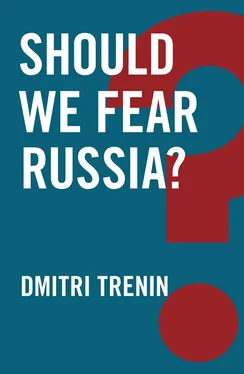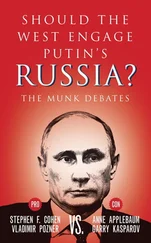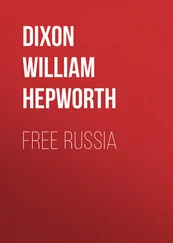Such an alignment would not result in permanent coalitions built around such fora as BRICS or SCO. There are serious issues within the non-West, not least between China and India. Moscow and Beijing do not always see eye to eye, and they have a host of practical issues to sort out in addition to some historical baggage. The non-West is not going to evolve into anything like the present-day West, a homogeneous community of like-minded nations with a set of shared values and undisputed leadership provided by the United States. Yet, with the addition of Russia from 2014, this group has gained a particularly combative great power.
The “new normal” of competition and even confrontation will last years. It might end sooner if the Russian Federation breaks down under the pressure of rivalry, like the Russian Empire did in the midst of World War I. The West would then have to deal with the consequences of another major collapse following that of the Soviet Union twenty-five years ago. There is no guarantee that it would be as relatively orderly and peaceful as the dismantlement of the USSR.
The competition might last longer if Russia is lucky enough to avoid a cataclysmic scenario but still lacks the will to begin improving its economy and overall governance. Then the West would be dealing with a country which would be simultaneously declining economically yet still able to marshal sufficient resources in the military sector to ensure its own security and pursue an active foreign policy, defying US global dominance.
In the seemingly unlikely but not totally impossible scenario of Russia using its confrontation with the world’s most powerful country to diversify and modernize its economy, overhaul and upgrade its scientific and technological base, and radically improve governance at all levels – particularly by means of prizing competence and reducing corruption – it may become an even more formidable competitor with the West. In other words, a successfully modernized Russia would not again seek to join the West but, rather, press it harder to protect its interests and promote its own worldview. Whatever Russia’s future, the conflict with the West is helping shape it.
Conclusion: How Conflict with the West Impacts on Russia
Over the centuries, Russia’s relations with the West have been a combination of a desire to emulate the more advanced nations of Europe, and to learn from them, and an effort to preserve its own identity and provide security vis-à-vis Europe’s hegemonic powers – and, more recently, the United States and its NATO allies. For periods of time, Russia dominated much of Central and Eastern Europe and was both the policeman of the continent and the hegemonic oppressor of other countries’ freedom. The end of the twentieth century witnessed an unprecedented attempt by post-imperial Russia to join the West, become an integral part of it, and be accepted as a major Western power, second only, but not subservient to the United States. This one of-a-kind adventure, however, has ended in failure.
Russia shares the blame for the way this has ended. The Kremlin has blundered its way into the disaster in Ukraine: first by believing that Ukraine could be integrated into the Eurasian Union project, then by mistaking the Maidan for a US-hatched plot, and finally by embarking on the “Novorossia” misadventure. It has recklessly gambled with the goodwill of the Europeans, above all the Germans, bought at a very high price at the end of the Cold War and carefully sustained for a quarter-century after that. Putin’s misreading of the German reaction to Crimea was stunning. Finally, Moscow’s rupture with the West put it in an awkward position of overreliance on China, an unsentimental would-be superpower that, like the United States, does not regard Russia as its equal. Such “Realpolitik” does not serve the Russian national interest at all.
The present confrontation between Russia and the West is just two years old, but the rift is getting deeper by the week. This confrontation is highly asymmetrical. In all relevant areas, the power of the United States, not to speak of the West as a whole, exceeds that of Russia by the widest margin. The Kremlin genuinely fears US-designed, US-sponsored and US-directed “color revolutions.” The Russian security community fears Western spying and its penetration of Russian officialdom and elites. The General Staff is concerned about the movement of NATO infrastructure toward Russia’s borders, the US ballistic missile defenses, and strategic non-nuclear systems.
Many of these fears are groundless or over-blown. NATO has certainly refocused on Russia and is now busy organizing new defenses. A nuclear superpower like Russia, however, has every reason to be confident about the power and effectiveness of its ultimate deterrent. Surprise invasions and decapitating strikes against Russia are prohibitively risky, and neutralizing its nuclear systems by means of ballistic missile defense will be out of the question for several decades to come. Similarly, a non-nuclear strike against Russia’s strategic assets can never achieve adequate success to protect the attacker against Moscow’s retaliation.
Thus, Russia has no serious reason to fear the West. Contrary to some popular inventions, the United States has no intention of breaking the Russian Federation into pieces and taking over the “juicier” parts. Western Europeans generally harbor no ill will toward Russia. Japan will not seek the return of the South Kuril Islands by force, and Canada will not attack Russian possessions in the Arctic. Poland, the Baltic States and Romania will remain frankly hostile and Britain and Sweden highly skeptical toward it, but none of these countries can mount a credible threat. Erdoğan’s Turkey, of course, is a country to watch, but Russia has a range of assets to prevent or contain the threat of a direct collision.
Russia, however, cannot afford to take the present confrontation/alienation lightly. Moscow’s breakout from the post-Cold War order carries a high price, to be paid over a long period of time. It cannot hope to defeat its former partners turned adversaries, but it can either use the stand-off as a challenge to improve its own ways or else succumb to it and seal its downward socio-economic and political trajectory. In the past two years, the Kremlin has been managing the situation while keeping the fundamentals of the politico-economic system intact. So far, it has shown neither a plan nor much of a desire to come up with a model that would encourage economic development and support entrepreneurship and innovation in the country.
If this continues much longer, it will be bad, and potentially tragic for the country. In the present situation of long-term confrontation with the West the consequences could be dire. Like World War I, which began with an apparent surge of Russian patriotism and support for the Romanov dynasty but finished off the empire and the dynasty within three years, the present conflict with the West, which started exactly a century later, has the potential to bring latent domestic tensions to a head. Russia is not a country where leaders are changed every four, five or six years by means of a ballot box, but it is a fact that in the last century the Russian people brought down the entire Russian state twice. The last such cataclysmic event occurred twenty-five years ago.
Russia’s present crisis is the worst since the collapse of the Soviet Union, with the future as difficult to foresee. In contrast to that of Gorbachev, Putin’s foreign policy is unlikely to grow more conciliatory as the crisis worsens, but the post-Putin era will probably provide a repudiation of many of the current practices, including in foreign policy. Russia, of course, will stay Russia: it will not attempt a new “docking” with Europe, but it may look for accommodation with it and with other neighbors. Such accommodation can only be shallow, given the differences in political, social, economic and values systems, but it might be sufficient to defuse many of the current risks. As a result, Russia’s Realpolitik may become more realistic.
Читать дальше












